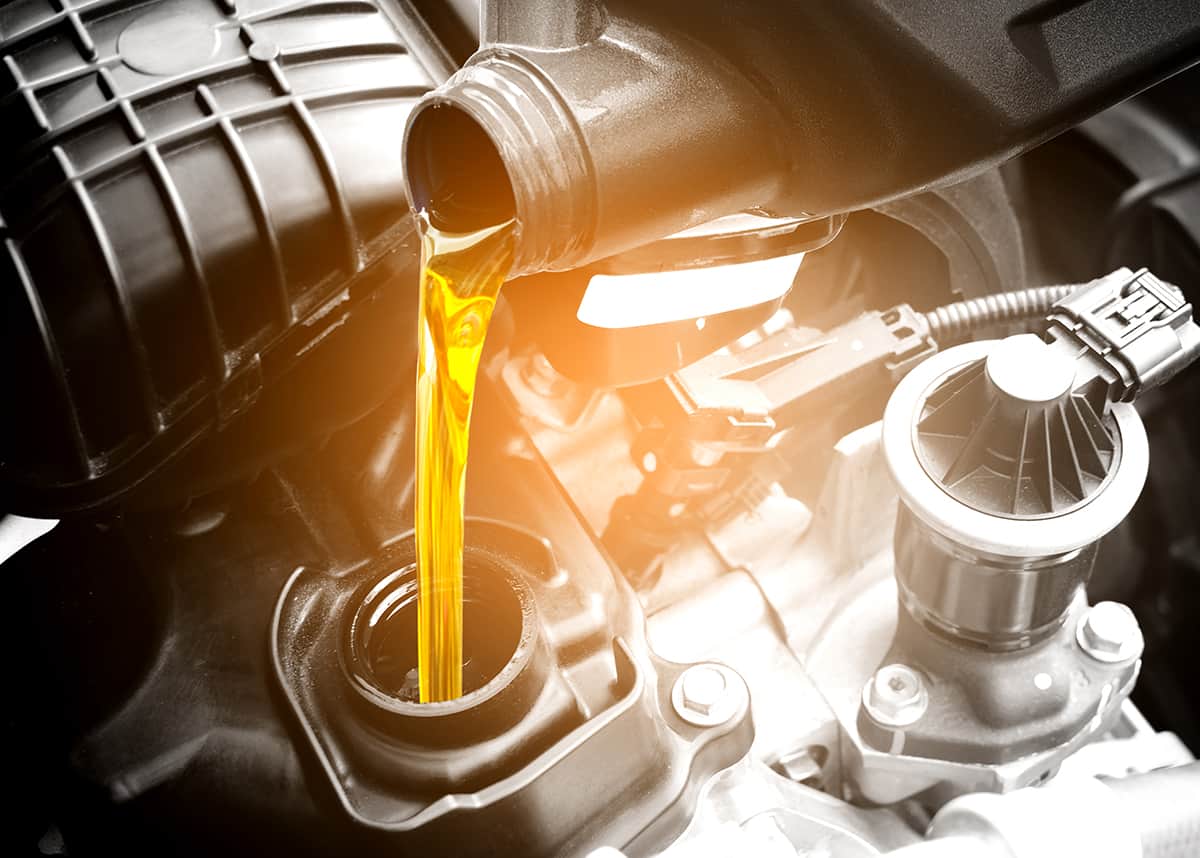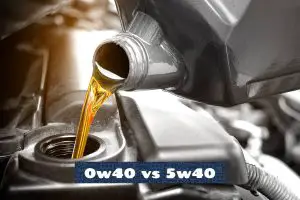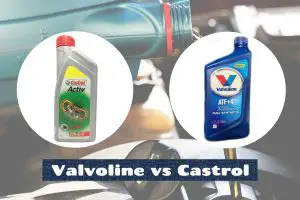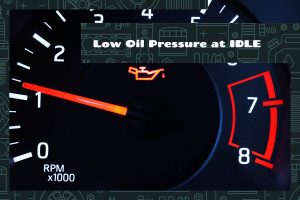Engine oils, the lifeblood of any motor vehicle, play a critical role in ensuring smooth, efficient, and prolonged engine life. However, the vast array of oils available in the market can make choosing the right one a daunting task. Mainly, understanding the difference between 0W20 and 5W30 oils is vital for any car owner. These oils, each with unique properties and benefits, have stirred debates among vehicle enthusiasts and experts alike.
0W20 and 5W30 engine oils primarily differ in their viscosity levels and cold-temperature performance:
- 0W20 is a lower-viscosity oil, great for colder temperatures, and typically provides better fuel efficiency.
- 5W30, on the other hand, has a higher viscosity, making it more suited for warmer climates and older vehicles that require thicker oil.
This guide aims to provide an in-depth comparison of 0W20 and 5W30 oils, ultimately concluding with which of them you should use in your vehicle.
What Is Engine Oil?

Engine oil, or motor oil, is a specially designed fluid that serves multiple purposes, including lubrication, cooling, cleaning, and protecting the internal parts of your engine.
The engine is the heart of your car. It comprises many moving parts that generate substantial heat and friction during operation. Here, engine oil steps in as the essential lubricant. By forming a thin layer between these parts, it minimizes friction, thus preventing wear and tear. Besides reducing wear, engine oil also dissipates the heat produced, preventing overheating of the engine.
Engine Oil Classification
Engine oils are classified primarily based on their viscosity, which refers to the oil’s resistance to flow. In simple terms, it describes how “thick” or “thin” the oil is. The viscosity of engine oil is represented by a specific coding system, such as 0W20 or 5W30. This classification is established by the Society of Automotive Engineers (SAE).
In the code, the first number followed by a ‘W’ (which stands for winter) indicates the oil’s viscosity at low temperatures, that is, how quickly the oil will flow when the engine is cold. The lower the number, the thinner the oil, meaning it will flow more easily at lower temperatures.
The number after the ‘W’ refers to the oil’s viscosity at 100 degrees Celsius, a standard high engine operating temperature. The higher this number, the thicker the oil at high temperatures.
0W20 Engine Oil
0W20 oil is a fully synthetic oil, meaning it is manufactured from chemical compounds rather than being derived from crude oil. The ‘0W’ in 0W20 indicates that this oil has a lower viscosity at cold temperatures, facilitating a quicker oil flow to vital engine parts during cold starts. The ’20’ indicates the oil’s viscosity at normal engine operating temperature, which is relatively low. This low viscosity means the oil is thinner, allowing it to flow more easily and smoothly even when the engine is hot.
Synthetic oils, including 0W20, often contain special additives to enhance performance. These can include detergents to clean the engine, anti-wear agents to protect engine parts, and dispersants to prevent sludge formation.
Pros and Cons of Using 0W20 Oil
0W20 oil provides several advantages. Firstly, its low viscosity leads to improved fuel efficiency. The oil’s thinner composition allows for less resistance in moving parts, translating into reduced energy loss and improved gas mileage.
The 0W20 oil also performs exceptionally well in cold weather. The ‘0W’ rating means it can flow quickly and efficiently, even at very low temperatures, offering instant lubrication to the engine during cold starts.
Despite these benefits, 0W20 oil may not be ideal for all situations. In extremely hot conditions or for heavy-duty vehicles that require a thicker oil, a higher viscosity oil might be better suited.
Ideal Conditions and Vehicles for 0W20 Oil Usage
0W20 oil is perfect for newer, high-performance cars designed to utilize low viscosity oils. Many modern vehicles, including hybrids, are designed to operate optimally with these fully synthetic, low-viscosity oils.
0W20 oil is also ideal for use in colder climates where temperatures frequently drop below freezing. The oil’s ability to flow easily at low temperatures ensures immediate lubrication during cold engine starts, reducing wear and tear.
5W30 Engine Oil
5W30 oil is typically either a synthetic blend or full synthetic oil. ‘5W’ signifies the oil’s viscosity in cold temperatures. A ‘5W’ rating means the oil will stay thinner in cold temperatures compared to higher ‘W’ ratings, providing quick lubrication during cold starts. The ’30’ signifies the oil’s viscosity at normal engine operating temperature, suggesting that it maintains a slightly thicker consistency at higher temperatures compared to lower viscosity oils like 0W20.
Like other engine oils, 5W30 contains additives to enhance its performance. These include detergents to clean the engine, anti-wear agents to minimize engine wear, and antioxidants to prolong the oil’s life.
Pros and Cons of Using 5W30 Oil
5W30’s viscosity rating ensures efficient lubrication during cold starts while maintaining adequate thickness for protection at higher temperatures.
Furthermore, 5W30 oil is compatible with many vehicles, making it a popular choice among car owners. It is often recommended for new and older models, ensuring a broad application sphere.
However, 5W30 may not offer the same fuel efficiency level as lower viscosity oils like 0W20, particularly in newer, performance-oriented vehicles designed to take advantage of thinner oils. Also, in very cold climates, a lower ‘W’ rating may be more desirable for immediate lubrication during cold starts.
Ideal Conditions and Vehicles for 5W30 Oil Usage
5W30 oil is a versatile lubricant that can be used in a variety of driving conditions. It performs well in moderate to hot climates and is suitable for regions with colder winters, given its ‘5W’ rating.
The oil is commonly recommended for both older and newer vehicles, making it a versatile choice for motorists. However, always consult your owner’s manual for the manufacturer’s oil recommendations.
Final Decision: Choosing Between 0W20 and 5W30

Choosing between 0W20 and 5W30 engine oils involves understanding your vehicle’s specific needs, your driving conditions, and the benefits each oil type provides. Both types offer unique advantages depending on these factors.
1. Assess Your Vehicle’s Requirements
Always refer to your car’s owner’s manual, specifying the recommended oil viscosity. Modern vehicles, including hybrids, often recommend low-viscosity oils like 0W20, while many older or high-performance vehicles may recommend a slightly thicker oil like 5W30.
2. Evaluate Your Driving Conditions
For instance, the climate where you live and drive is crucial. If you live in a colder climate with temperatures often dropping below freezing, 0W20 oil, which performs exceptionally well under these conditions, could be a good choice. It offers superior flow at lower temperatures, ensuring immediate engine lubrication during cold starts.
3. Consider Fuel Efficiency
Lower viscosity oils, like 0W20, can lead to better fuel efficiency since their thinner consistency reduces resistance within the engine. However, the difference in fuel economy between 0W20 and 5W30 may be minimal and might not be the deciding factor unless fuel efficiency is a top priority for you.
Table Summary
| Criteria | 0W20 Engine Oil | 5W30 Engine Oil |
| Composition | Fully synthetic oil | Can be a synthetic, synthetic blend, or conventional oil |
| Cold Weather Performance | Excellent due to low viscosity. Provides instant lubrication during cold starts. | Good, but it may not flow as quickly as 0W20 during cold starts. |
| Hot Weather Performance | Good. Its thinner composition allows it to flow smoothly even when the engine is hot. | Better. Maintains a thicker consistency at higher temperatures for added protection. |
| Fuel Efficiency | Excellent. Thinner oil reduces resistance within the engine, improving fuel economy. | Good, but may not provide the same level of fuel efficiency as 0W20. |
| Vehicle Suitability | Ideal for newer, high-performance cars designed to utilize low-viscosity oils. Many hybrids also use 0W20. | Versatile. Suitable for both new and older models. Often recommended for high-performance vehicles requiring thicker oil. |
| Climate Suitability | Best for colder climates due to lower viscosity. | Suitable for a wide range of climates, performs well in moderate to hot climates. |
| Cost and Maintenance Interval | Often more expensive upfront but offers longer oil change intervals. | Typically less expensive upfront, but may require more frequent oil changes depending on the specific product formulation. |






